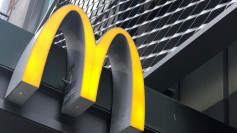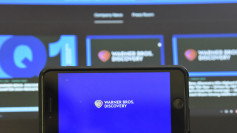A deadly outbreak of E. coli has been linked to McDonald's Quarter Pounder hamburgers, sickening at least 49 people across 10 states, according to the U.S. Centers for Disease Control and Prevention (CDC). The outbreak, which has already claimed the life of one person in Colorado and resulted in the hospitalization of 10 others, has raised serious concerns about food safety. The infections were reported between September 27 and October 11, with most cases occurring in Colorado and Nebraska. Other affected states include Iowa, Kansas, Missouri, Montana, Oregon, Utah, Wisconsin, and Wyoming.
The CDC, in collaboration with the U.S. Department of Agriculture (USDA), the Food and Drug Administration (FDA), and state health authorities, is investigating the source of the contamination. While a definitive cause has not been identified, preliminary investigations are focusing on slivered onions and beef patties used in McDonald's Quarter Pounders. According to the CDC, everyone interviewed in connection with the outbreak had eaten at McDonald's before falling ill, with most specifically mentioning the Quarter Pounder burger.
In response to the outbreak, McDonald's has temporarily removed the Quarter Pounder from menus in the affected states as well as portions of Idaho, Nevada, New Mexico, and Oklahoma. The fast-food chain has also stopped distributing slivered onions from a supplier suspected of being linked to the contamination. McDonald's officials emphasized that food safety is a top priority. "We take food safety extremely seriously, and it's the right thing to do," the company said in a statement.
The outbreak comes at a difficult time for McDonald's, which has been grappling with declining global sales. In the second quarter of this year, the Chicago-based chain saw its global same-store sales fall for the first time in nearly four years, partly due to inflation concerns that have driven consumers to opt for cheaper dining alternatives or skip eating out altogether. The company had introduced a $5 meal deal in U.S. restaurants in late June to attract more customers, but the Quarter Pounder was not included in the promotion. Following news of the E. coli outbreak, McDonald's shares dropped 9% in after-hours trading on Tuesday, adding to the company's financial woes.
Health experts are urging the public to be vigilant about symptoms of E. coli infection, which can include severe stomach cramps, fever, and bloody diarrhea. The strain of bacteria implicated in this outbreak, E. coli O157:H7, is particularly dangerous and can lead to serious complications such as hemolytic uremic syndrome, a type of kidney failure. Children under the age of five and elderly individuals are especially vulnerable to the severe effects of the infection. The CDC warns that anyone experiencing symptoms after consuming a McDonald's Quarter Pounder should seek medical attention immediately.
Cesar Piña, McDonald's chief supply chain officer, released a statement confirming that the company is fully cooperating with the ongoing investigation. He noted that "initial findings from the investigation indicate that a subset of illnesses may be linked to slivered onions used in the Quarter Pounder and sourced by a single supplier." McDonald's has halted the distribution of these onions to local restaurants and is working to ensure that the problem does not spread further. Piña added that other menu items, including the Big Mac, McDouble, and Cheeseburgers, remain unaffected and are still available to customers.
The CDC also warned that the actual number of cases could be much higher than the 49 confirmed so far. Given the timeline of infection and reporting delays, it is possible that more cases will emerge in the coming days. The organization has issued a public health advisory, recommending that consumers who have eaten McDonald's Quarter Pounders in the affected states monitor their health closely and consult healthcare providers if symptoms develop.
This outbreak is a stark reminder of the ongoing challenges in maintaining food safety across the fast-food industry. E. coli O157:H7 causes approximately 74,000 infections each year in the U.S., resulting in more than 2,000 hospitalizations and 61 deaths annually, according to the CDC. While most individuals recover from the infection within five to seven days, severe cases can lead to life-threatening complications.
As McDonald's works to contain the fallout from the outbreak, public health officials are urging consumers to remain cautious. "We understand the gravity of the situation and are taking every step to ensure that the products we serve are safe for our customers," Piña said, promising to keep the public updated as the investigation unfolds.






